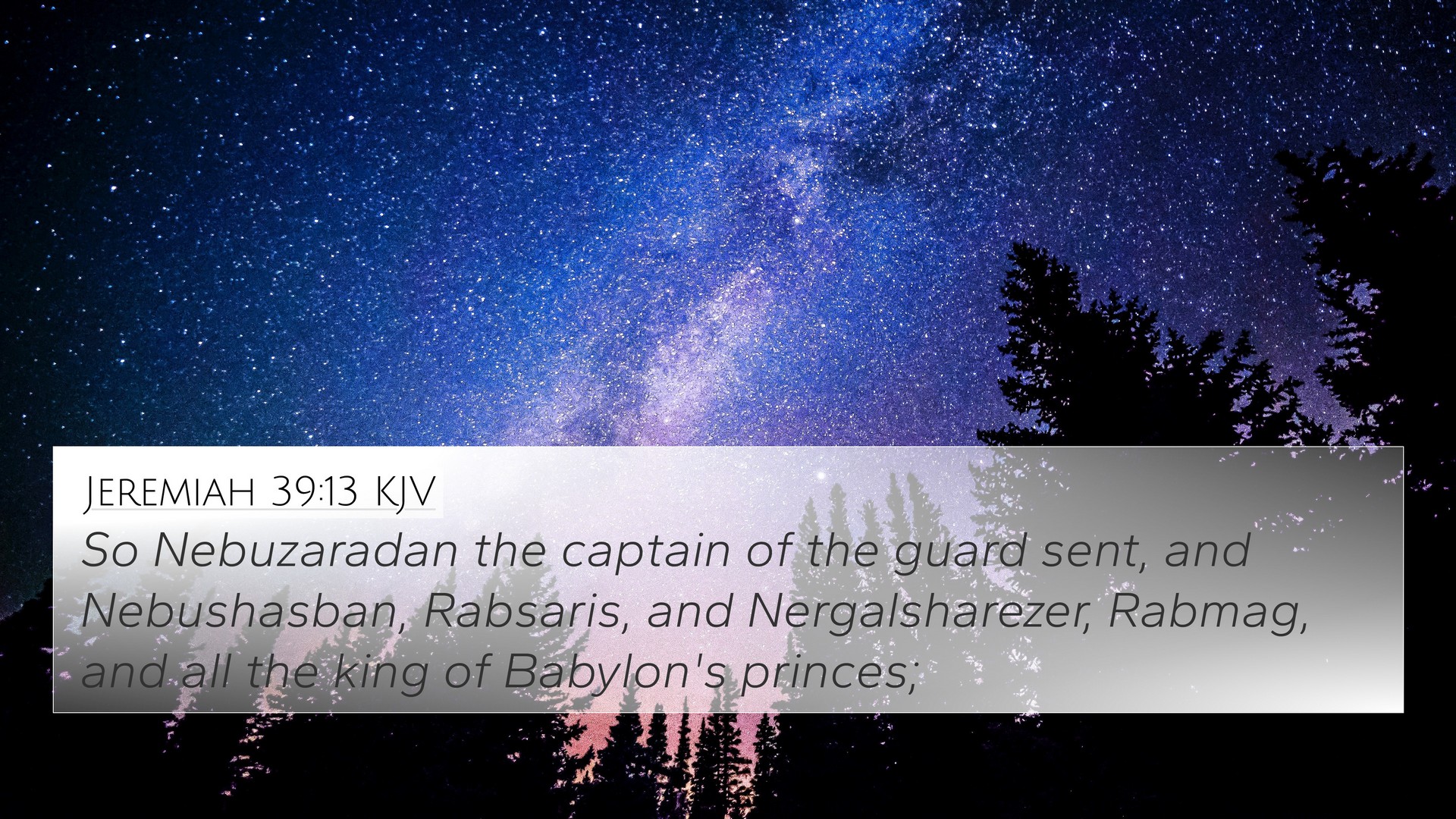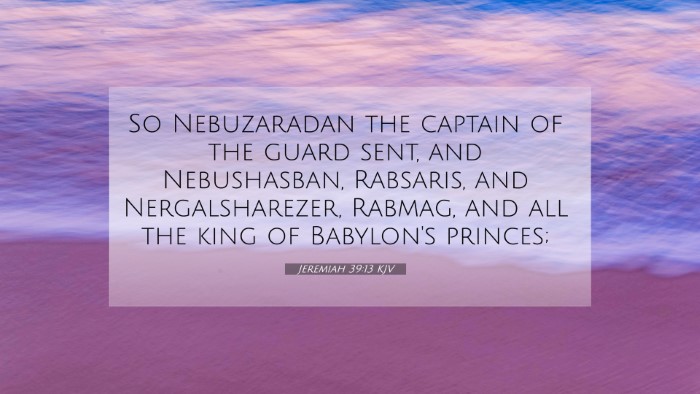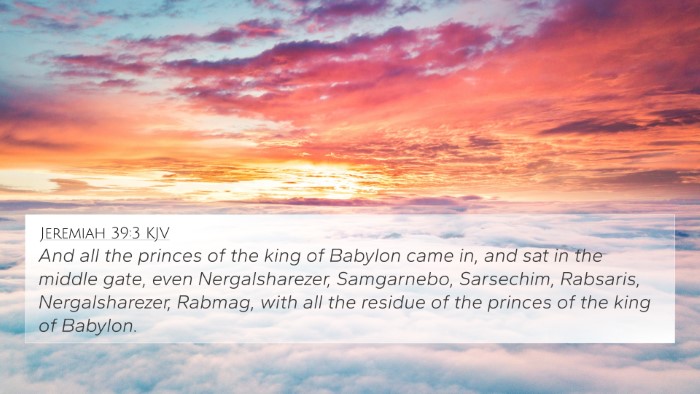Understanding Jeremiah 39:13
Jeremiah 39:13: "So Nebuzaradan the captain of the guard sent and took Jeremiah out of the court of the prison, and committed him unto Gedaliah the son of Ahikam, the son of Shaphan, that he should carry him home: so he dwelt among the people."
Summary of Key Themes
This verse depicts the release of Jeremiah from prison, showing God's providence amidst dire circumstances. Jeremiah’s deliverance underscores themes of hope, mercy, and the fulfillment of God's plans.
Interpretative Insights
Commentaries provide a rich analysis of this verse:
- Matthew Henry: He emphasizes the divine intervention in Jeremiah’s life, showcasing God’s faithfulness to His prophets. The act of Nebuzaradan, a Babylonian officer, illustrates not only the shift in power but also God's control over the events of history.
- Albert Barnes: Barnes notes that Jeremiah was not only spared but given the opportunity to dwell among his own people, highlighting God's continued care for him. The appointment under Gedaliah signals a restoration of some sort of community identity for the people of Judah.
- Adam Clarke: Clarke expounds on the significance of Jeremiah’s release, discussing how it also serves as a testament to God's overarching sovereignty. He expresses that Jeremiah’s presence in the community is a vital element for the people’s moral and spiritual guidance.
Bible Cross-References
Jeremiah 39:13 connects to several other scriptures, enhancing our understanding of its message. Here are some related Bible verses:
- Jeremiah 40:1-2: Continuation of Jeremiah’s story following his release.
- Isaiah 46:10: God's declaration of His divine plan; parallels God's sovereignty in biblical history.
- 2 Kings 25:8-12: The account of the fall of Jerusalem, linking back to the broader narrative of judgment and hope.
- Zechariah 7:14: Reflects on God's dealings with His people post-exile, reinforcing themes of restoration.
- Romans 8:28: Assurance of God's purpose in all things, resonating with Jeremiah's experience of being rescued.
- Lamentations 3:22-23: A reflection on God’s mercy amidst suffering, connecting with Jeremiah’s life amidst turmoil.
- Matthew 10:29-30: Demonstrates God's care for individuals, resonating with the idea of God preserving Jeremiah.
Connecting Themes in the Bible
This verse and its context allow for deep comparative Bible verse analysis. The narratives of deliverance and hope in Jeremiah find echoes in both Old and New Testament scriptures, showcasing a continuous thread of God’s providence.
Principles for Cross-Referencing
When studying Jeremiah 39:13, consider the following tools and methods for effective Bible cross-referencing:
- Utilize a Bible concordance to find related verses.
- Engage in cross-reference Bible study methods to explore thematic connections.
- Identify Bible verses that relate to each other for a more comprehensive study.
Conclusion
Jeremiah 39:13 serves as a poignant reminder of God’s unfailing support for His faithful servants, providing hope and a guiding light amid challenges. By exploring cross-references, one can gain a deeper understanding of the interconnectedness of biblical texts and the overarching divine narrative.
In conclusion, understanding this verse contributes to an enriched grasp of inter-Biblical dialogue and the continuous themes of mercy and providence that span across Scripture.




